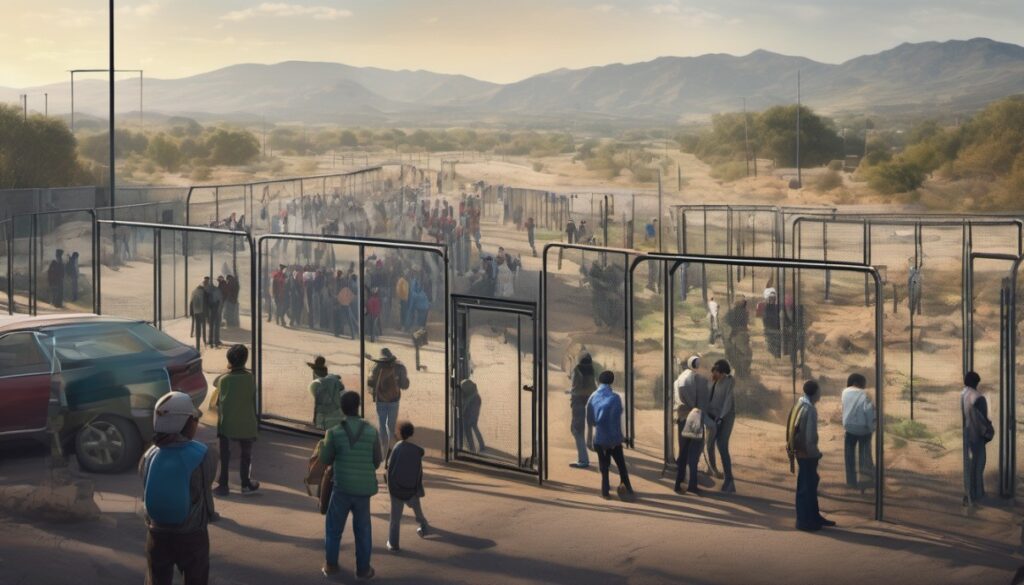“National freedom” is a nation’s ability to govern itself without external control. And we all know how many nations celebrate an independence day of some kind.
But when it comes to individual liberty, what do national freedom and “independence” mean? Does the collective independence of any nation ensure freedom for all of its people? Are there cases where national freedom has been used to suppress individual liberties?
Here’s a specific incident to chew on: In 2022, the Italian embassy refused to issue visas to the Bangladesh chess team for the FIDE World Junior (U-20) Chess Championship in Sardinia due to fears that they would defect — that is, decide not to return to Bangladesh — and become undocumented immigrants.
This incident was a discriminatory approach by the Italian embassy and, in my view, a violation of human rights: specifically the right to freedom of movement. But it raises important questions about individual liberty, the impact of national borders, and governments’ arbitrariness.
The Importance of Individuality
National borders are often promoted as necessary for the security of the state and the supposed protection of its citizens’ interests. Politicians argue that national borders are necessary to control the movement of people and goods, and that control might have limited the spread of the COVID-19 pandemic … and might prevent the next pandemic disease or outbreak. (Or so the politicians say.)
However, the Italian embassy’s refusal to issue visas based on the players’ nationality implies that it presumed them to be untrustworthy, which contradicts the fundamental identity of human beings as individuals. It was, essentially, a collectivist and racist decision.
In cases like this, clearly Bangladesh’s status as an independent nation did not help its chess players. Consider the counterfactual: Imagine Bangladesh had lost its war for independence back in 1971 and were still part of Pakistan. Would the Italian embassy have been concerned about defections?

Probably not.
Consider other scenarios. Say Catalonia becomes independent from Spain, but the European Union doesn’t recognize that independence. Catalonian chess players would be out of luck. And if Quebec were ever to separate from Canada, I have a hard time believing the Québécois would be able to travel to the United States … or anywhere else, for that matter.
The Rohingya Crisis in Myanmar and Bangladesh is another example. The lack of legal recognition for the Rohingya as citizens of Myanmar, combined with restrictions on their movement across borders, has resulted in a serious violation of their individual liberty and basic human rights.
So while national freedom may create a conducive environment for individual liberty, it is not a sufficient condition for its application. National borders and governments can limit individual liberty through policies that restrict free movement, infringe on basic human rights, and prevent individuals from pursuing their own interests and well-being. Therefore, it is essential to examine and critique the actions of governments and institutions to ensure they are not undermining individual liberty in the name of national interest.
Adam Smith Applied
As Adam Smith famously argued in The Wealth of Nations, “The natural effort of every individual to better his own condition … is so powerful, that it is alone, and without any assistance, not only capable of carrying on the society to wealth and prosperity, but of surmounting a hundred impertinent obstructions with which the folly of human laws too often encumbers its operations.”
National borders can have significant, adverse effects on this “natural effort.” And they go beyond visa restrictions and border crises; they affect trade, investment, and cultural exchange, all of which are essential for the growth and progress of societies. Borders, no matter how loose, also restrict the movement of people and goods, leading to inefficiencies and lost opportunities for economic growth and cultural enrichment.
The Benefits of Immigration
Below are some ways open borders can be beneficial. Many of them come straight from Ludwig von Mises himself.
(By the way, you might enjoy How Immigrant Values Shape America):
- Immigration can help address labor shortages in countries with aging populations or low birth rates, which can help boost economic growth and productivity.
- Immigration can bring new skills and perspectives to a country, which can lead to new innovations and creativity.
- It can provide a solution to humanitarian crises, such as war and persecution, by offering a safe haven for those in need.
- Immigration can foster cultural exchange and understanding, which can promote greater tolerance and cooperation between nations.
For more context, see Learn Liberty’s video take:
The Solution: Open Borders and Limited Government
As we approach the month of July, which sees the celebration of American Independence Day, in addition to the Independence Days of many other major countries like Canada, Argentina, and Egypt, let’s remember a crucial reality: National freedom does not equal individual freedom.
In fact, in some ways, as the case of the Bangladeshi chess team demonstrates, it restricts it.
Keep that story in mind the next time your country celebrates “Independence Day.” And let’s use those days to work toward a world where individual liberty is respected, each person is treated as an individual (not as a member of a group or country), and national borders do not restrict the potential of individuals and societies.
Are you a student interested in getting involved in pro-liberty activism? By applying to join Students For Liberty’s Local Coordinator Program, you can be supported in promoting the ideas of liberty while also developing your skills and meeting many like-minded students from across the world. Click on the button below to find out more and get involved!
This piece solely expresses the opinion of the author and not necessarily the organization as a whole. Students For Liberty is committed to facilitating a broad dialogue for liberty, representing a variety of opinions.



